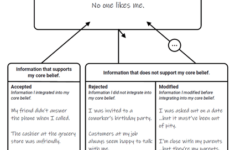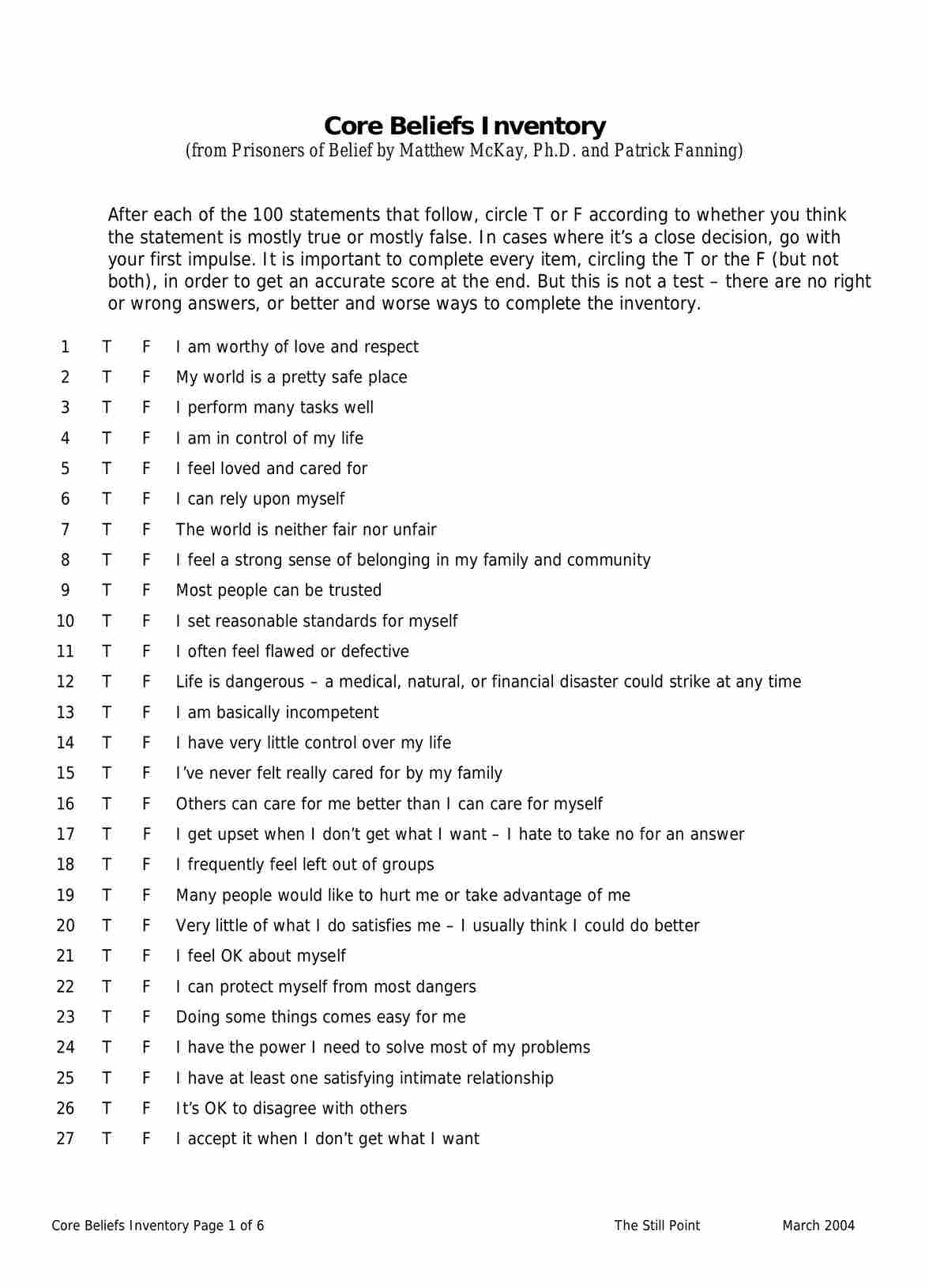Cognitive Behavioral Therapy (CBT) is a widely used therapeutic approach that focuses on how our thoughts, beliefs, and attitudes influence our feelings and behaviors. One of the key components of CBT is identifying and challenging core beliefs that may be contributing to negative emotions and behaviors.
A core beliefs worksheet is a tool used in CBT to help individuals identify and examine their core beliefs. These beliefs are often deeply ingrained and can shape how we view ourselves, others, and the world around us. By bringing these beliefs to light, individuals can begin to challenge and change them in order to improve their mental health and well-being.
When completing a core beliefs worksheet, individuals are typically asked to reflect on various aspects of their lives, such as relationships, work, and self-image. They may be prompted to identify underlying beliefs that are contributing to negative emotions or behaviors, such as “I am not good enough” or “I must always please others.”
Once these beliefs are identified, individuals are encouraged to challenge them by examining the evidence for and against them. This may involve looking for instances that contradict the belief or exploring alternative perspectives. By doing so, individuals can begin to reframe their core beliefs in a more positive and realistic light.
Over time, with continued practice and support from a therapist or counselor, individuals can begin to replace old, negative core beliefs with new, more adaptive beliefs. This process can lead to improved self-esteem, healthier relationships, and a more positive outlook on life.
In conclusion, a core beliefs worksheet is a valuable tool in the practice of Cognitive Behavioral Therapy. By identifying and challenging negative core beliefs, individuals can make significant strides in improving their mental health and well-being. If you are interested in exploring your own core beliefs, consider seeking out a therapist or counselor who specializes in CBT to guide you through the process.

